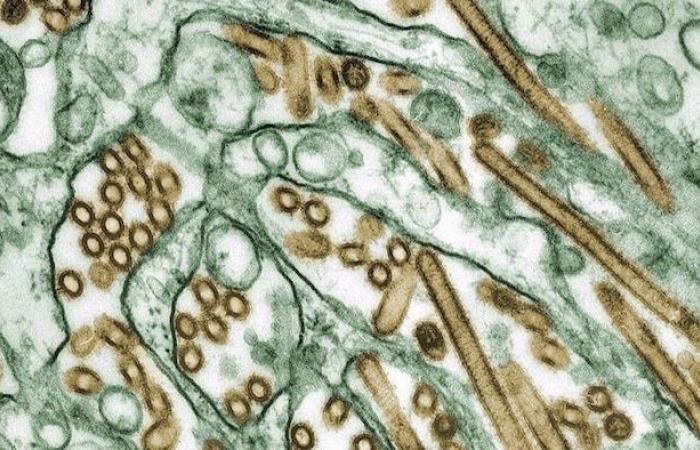A patient was hospitalized in Louisiana due to infection with the avian flu virus, the first serious case in the United States, American health authorities announced Wednesday.
The patient was in contact with contaminated and dead birds in a farmyard, said the Centers for Disease Prevention and Control (CDC) in a press release, adding that since April, 61 cases of avian flu in humans have been detected in the United States.
Genetic sequencing showed that the H5N1 virus which infected this patient from the state of Louisiana, in the south of the country, was of the same type as that which had earlier infected people in the American state of Washington and in neighboring Canada.
This version of the virus is different from that detected in several herds of dairy cows and on poultry farms in the United States.
No further details on the patient’s profile or state of health were given.
Open in full screen mode
The avian influenza A virus (H5N1, in brown) infected a young British Columbian in November, causing his hospitalization.
Photo : CDC/Cynthia Goldsmith/Jackie Katz/Sharif Zaki
Serious cases of avian flu in humans have previously been detected in other countries, recall the American authorities. This was the case of a teenager hospitalized in November in British Columbia.
No spread of bird flu [de sous-type] H5 from person to person was not detected.
Furthermore, the CDC add that this new case detected, although serious, do not modify
their assessment concerning the immediate risk linked to the H5N1 avian influenza virus for public health, which remains low
.
Avian influenza A (H5N1) first appeared in 1996, but since 2020 the number of outbreaks in birds has exploded and an increasing number of mammal species have been affected.
Experts are concerned about the growing number of infected mammals, although cases in humans remain rare. They fear that high circulation would facilitate a mutation of the virus which would allow it to be transmitted from one human to another.
In September and November, two people tested positive for avian flu in the United States, with no known contact with an infected animal.






